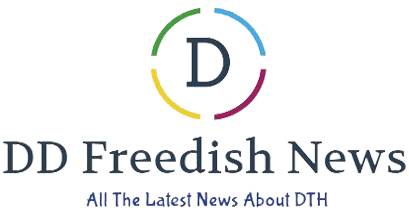Because the WHO struggles to take care of order throughout the pandemic, secret tapes tells us what they actually suppose
Lawrence Gostin, director of the WHO Collaborating Heart on Public Well being Regulation and Human Rights at Georgetown College mentioned WHO needs to be obligated to publicly report when nations aren’t sharing sufficient information.
Because the coronavirus explodes once more, the World Well being Group finds itself each below intense stress to reform and holding out hope that US President-elect Joe Biden will reverse a call by Washington to depart the well being company.
explodes once more, the World Well being Group finds itself each below intense stress to reform and holding out hope that US President-elect Joe Biden will reverse a call by Washington to depart the well being company.
With its annual assembly underway this week, WHO has been sharply criticized for not taking a stronger and extra vocal position in dealing with the pandemic. For instance, in non-public inside conferences within the early days of the virus, prime scientists described some nations’ approaches as “an unlucky laboratory to review the virus” and a “macabre” alternative to see what labored, recordings obtained by The Related Press present. But in public, the UN well being company lauded governments for his or her responses.
Biden has promised to overturn President Donald Trump’s determination in June to chop off funds to WHO and withdraw the US WHO has additionally bowed to calls for from member nations for an impartial panel to evaluate its administration of the pandemic response, and WHO Director-Basic Tedros Adhanom Ghebreyesus mentioned Monday that the company welcomed “any and all makes an attempt” to strengthen it “for the sake of the individuals we serve.”
One of many central dilemmas dealing with the WHO is that it has no enforcement powers or authority to independently examine inside nations. As a substitute, the well being company depends on behind-the-scenes talks and the cooperation of member states.
Critics say WHO’s conventional aversion to confronting its member nations has come at a excessive value. As COVID-19 unfold, WHO usually shied away from calling out nations, as large donors corresponding to Japan, France and Britain made repeated errors, in accordance with dozens of leaked recordings of inside WHO conferences and paperwork from January to April obtained by The Related Press.
unfold, WHO usually shied away from calling out nations, as large donors corresponding to Japan, France and Britain made repeated errors, in accordance with dozens of leaked recordings of inside WHO conferences and paperwork from January to April obtained by The Related Press.
Some public well being specialists say WHO’s failure to exert its affect lent credence to nations adopting dangerous outbreak insurance policies, probably compromising efforts to cease the virus.
“We want WHO to be daring and to make use of their political energy to call and disgrace as a result of the implications are so devastating,” mentioned Sophie Harman, a professor of worldwide politics at Queen Mary College in London. “That is their Spanish flu second … By not talking up when nations are doing questionable issues, WHO is undermining its personal authority whereas the planet burns.”
Others mentioned it might be politically unwise for WHO to be too outspoken except nations give the company extra energy and the power to censure nations — an possibility that Germany and France have just lately proposed.
“If Tedros was to take a really aggressive stance towards member nations, there can be repercussions,” mentioned Suerie Moon, co-director of the International Well being Centre on the Graduate Institute of Geneva, referring to WHO’s director-general.
WHO spokeswoman Farah Dakhlallah mentioned that because the starting of the coronavirus outbreak, “WHO officers have had and proceed to have, frank and open discussions with authorities counterparts … We’re pleased with an organizational tradition that fosters candid dialogue with the goal of reaching life-saving options.”
outbreak, “WHO officers have had and proceed to have, frank and open discussions with authorities counterparts … We’re pleased with an organizational tradition that fosters candid dialogue with the goal of reaching life-saving options.”
One of many scientists within the conferences, emergencies chief Dr Michael Ryan, additionally laid out WHO’s strategy in reply to a media query March 11 on whether or not the company was keen to say which nations weren’t doing sufficient.
“The reply to that query is, you recognize who you might be,” Ryan mentioned. “The WHO doesn’t work together in public debate or criticize our member states in public. What we attempt to do is figure with our member states constructively.”
It’s not unprecedented, nevertheless, for WHO to publicly query its member states. It threatened to shut its China workplace when the nation was hiding instances throughout the SARS outbreak, loudly referred to as for Nigeria to reverse its boycott of the polio vaccine in 2003 and accused Tanzania of not sharing sufficient details about an Ebola epidemic final yr.
The evaluate of WHO’s position within the pandemic comes at a crucial time as a result of the company is now tasked with serving to to purchase and distribute coronavirus vaccines all over the world as soon as any show efficient, particularly to poorer nations. Some nations, together with the U.S. and Russia, have refused to affix the hassle, however on Sunday, WHO chief scientist Dr. Soumya Swaminathan mentioned she hoped Biden’s election would “open the door” to U.S. inclusion.
vaccines all over the world as soon as any show efficient, particularly to poorer nations. Some nations, together with the U.S. and Russia, have refused to affix the hassle, however on Sunday, WHO chief scientist Dr. Soumya Swaminathan mentioned she hoped Biden’s election would “open the door” to U.S. inclusion.
WHO’s reticence to name out nations began with China, because the AP earlier reported. Regardless of a January assembly between Tedros and Chinese language President Xi Jinping, info on the outbreak was nonetheless sparse all through February. Maria Van Kerkhove, WHO’s technical lead for COVID-19 , famous that the company lacked “sufficient element to say what has labored and what hasn’t.”
, famous that the company lacked “sufficient element to say what has labored and what hasn’t.”
But at a media briefing shortly afterwards, Tedros mentioned, “China is doing many good issues which can be slowing the virus and the details communicate for themselves.”
Additionally in February, WHO scientists have been involved about Japan. On Feb. 1, a passenger who disembarked the Diamond Princess cruise ship in Hong Kong examined optimistic for the coronavirus . On the ship’s subsequent cease in Yokohama, 10 extra instances have been discovered and authorities put all 3,711 individuals on board below lockdown.
. On the ship’s subsequent cease in Yokohama, 10 extra instances have been discovered and authorities put all 3,711 individuals on board below lockdown.
Ryan advised reporters on the time: “Let’s watch out right here to not overreact.” However on Feb. 10, the case depend almost doubled in a single day.
“(That’s) not shocking given the character of the response of the investigation,” Ryan mentioned at an inside assembly, saying solely a small variety of epidemiologists had been assigned to the outbreak. “For those who double the variety of instances in a ship in a day, one thing shouldn’t be proper.”
Dr. Thomas Grein, WHO’s chief of acute occasions administration group, reported to his colleagues that WHO had mentioned the outbreak with their Japanese counterparts, however didn’t glean a lot helpful info.
“It’s a really, very delicate difficulty and we have to tread fastidiously,” he warned.
Though WHO was keenly conscious the state of affairs was deteriorating, scientists mentioned the outbreak might assist in understanding COVID-19 transmission patterns.
transmission patterns.
“(It’s) unlucky, however a helpful alternative to review the pure historical past of the virus,” Ryan mentioned.
A number of days later, Japanese outbreak specialist Dr. Kentaro Iwata went aboard the Diamond Princess and referred to as the response “fully chaotic.” Quickly afterward, WHO introduced greater than half of the world’s recognized COVID-19 instances outdoors China have been aboard the Diamond Princess.
instances outdoors China have been aboard the Diamond Princess.
“It was very apparent on that cruise ship that issues have been going badly mistaken and WHO ought to have mentioned one thing,” mentioned Lawrence Gostin, director of the WHO Collaborating Heart on Public Well being Regulation and Human Rights at Georgetown College. “When what nations are doing is flat-out mistaken, we want WHO to say so.”
Whereas WHO wasn’t particular, Tedros mentioned on Feb. 26: “One of many largest challenges we face is that too many affected nations are nonetheless not sharing information with WHO.”
All through February and March, COVID-19 triggered outbreaks in South Korea, Singapore, Iran and elsewhere. The virus additionally gained a foothold in Italy, turning Europe into the epicenter of the pandemic.
triggered outbreaks in South Korea, Singapore, Iran and elsewhere. The virus additionally gained a foothold in Italy, turning Europe into the epicenter of the pandemic.
At WHO, officers nervous in inside conferences concerning the lack of awareness from European member states. Grein mentioned WHO’s efforts to get extra element concerning the spiraling outbreaks had “spectacularly failed.”
But on March 8, Tedros tweeted that “the federal government & the individuals of Italy are taking daring, brave steps aimed toward slowing the unfold of the # Coronavirus & defending their nation & world.” Three days later, Tedros declared COVID-19
& defending their nation & world.” Three days later, Tedros declared COVID-19 to be a pandemic, saying the announcement was made partly because of “alarming ranges of inaction” by nations, which he didn’t identify.
to be a pandemic, saying the announcement was made partly because of “alarming ranges of inaction” by nations, which he didn’t identify.
Georgetown College’s Gostin mentioned WHO needs to be obligated to publicly report when nations aren’t sharing sufficient information.
“If a rustic shouldn’t be offering very important epidemiological or organic info, then WHO and the world are flying blind in an outbreak and we will’t have that,” he mentioned.
WHO additionally complained in non-public about Western nations hoarding scarce pandemic provides.
“We had the horrible state of affairs yesterday with (protecting private tools) the place all of the provides have been requisitioned in France and we misplaced entry,” Ryan advised his colleagues. He mentioned WHO wanted to stress nations and corporations to keep away from related conditions.
As nations throughout Europe moved to undertake social distancing measures and cancel mass gatherings in early March, Ryan observed one nation didn’t: Britain.
“There isn’t a single sports activities occasion in Europe and but all the Premier League matches within the U.Ok. are to go forward as regular,” he mentioned. Ryan described Britain’s pandemic technique as “problematic” after listening to the U.Ok.’s chief scientific officer publicly say the nation was aiming for herd immunity.
“For that to occur, lots of of hundreds and hundreds of thousands of older persons are going to change into contaminated and there may be simply going to be a lot demise,” Ryan mentioned. Nonetheless, he mentioned, the totally different approaches to tackling COVID-19 globally might show to be “a large ecological research” that might permit WHO to doc what labored finest.
globally might show to be “a large ecological research” that might permit WHO to doc what labored finest.
“It’s macabre in some methods, but it surely’s actuality,” he mentioned.
Going ahead, WHO’s position within the continued unfolding of the pandemic will rely partly on the panel evaluate. Harman, the professional from Queen Mary College, sympathized that WHO had monumental accountability within the early months of COVID-19 however mentioned even higher challenges loom now.
however mentioned even higher challenges loom now.
“This isn’t an experiment for WHO to be taught classes for the long run, the stakes are too excessive for that,” she mentioned. “With the following wave of the pandemic, I feel the time for quiet diplomacy has handed.”
#struggles #preserve #order #pandemic #secret #tapes #tells











